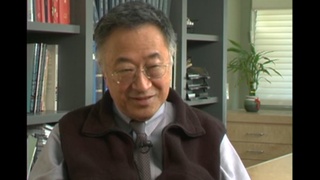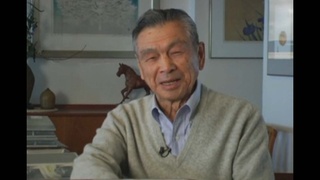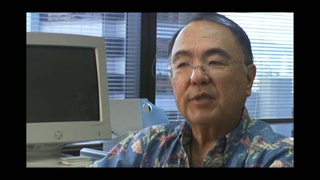Interviews
Discharged from the U.S. Army after Pearl Harbor
I was in the service of the United States Army on December 7 that was the station on Angel Island in San Francisco Bay. And the …but in February, actually on February 14, 1942, I was discharged. I was transferred to the reserve court because I was Japanese. And I had a letter to that effect from the commanding officer, saying that army let Japanese back in together. He would be glad to take me back in. I was very disappointed to be released. Very much so. Some of the Niseis were transferred to inland posts if you remember, but others were released. I was the one among those that were released.
I*: When you released, then where did you go?
Came home.
I: Came home.
Yes.
I: And what was it like when you got home?
My father had just been taken by FBI that day. The very morning that I came home, he was taken by FBI. One of the…what do you call it…enemy alien. Enemy alien status. Taken to the…eventually taken to Missoula, Montana.
I: Was your mother frightened?
Oh, yes. Oh yes. She was pretty much upset. And we had the store still open, even though I wasn’t doing much business. Store was open. I came home to that situation and eventually we sold the store.
* “I” indicates an interviewer (Akemi Kikumura Yano).
Date: December 5, 2005
Location: Oregon, US
Interviewer: Akemi Kikumura Yano, Sojin Kim
Contributed by: Watase Media Arts Center, Japanese American National Museum.










